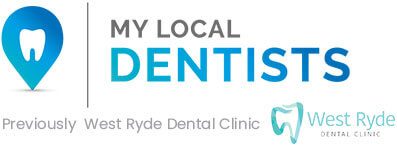
Dental pain can cause immense distress as it is caused by inflammation in the inner tooth, which has a dense network of nerves and blood vessels.
If you’re suffering from tooth pain, you will possibly look to any treatment that can provide temporary relief until you can see a emergency dentist.
Since predicting the onset of toothache pain is impossible, it is a good idea to know what could be done to soothe a painful tooth with home remedies and over-the-counter medication.
Symptoms of toothache
- Dental pain or pain in the jaws
- Inflammation of the tooth or gum
- Fever
- Foul-tasting drainage from the gums
- Dental sensitivity to hot or cold
What Causes a Toothache?
Tooth decay
Teeth can hurt for a number of reasons, but the most common reason is tooth decay caused by poor dental hygiene. which is when bacteria attack the tooth and erode its enamel.
Inflammation of the surrounding gum
Bacteria grow on our teeth naturally and, if not removed with a proper brushing technique, can build into plaque which eventually hardens into a yellowish layer around the gum tissue. This layer is called tartar and allows bacteria to infect the gum, inflaming the gum tissue and damaging the jaw bone.
In its early stages, gum infection is called gingivitis, and if not treated properly, it can progress to periodontitis, one of the more serious dental problems.
Tooth loss
Periodontal disease, old age, trauma and certain medical conditions can cause tooth loss. A tooth can come loose, leaving nerve endings and blood vessels exposed to irritants such as hot or cold food items or even air and can cause severe oral pain.
Dental trauma
Being in an accident or getting hit by an object in the face can cause injury to the gums, teeth, jawbone and other parts of the face resulting in excruciating pain.
Referred pain
Sometimes, pain in areas around the teeth can manifest as toothache pain. This pain could originate in the jaw, head, ear or chest and radiate towards the teeth. This type of pain is called referred pain.
 Dental eruption
Dental eruption
Wisdom teeth are the molars at the very end of the jaw bone.
Sometimes, they erupt at an odd angle or may have enough space on the jaw to erupt properly. They push against the adjoining teeth, making them hurt.
They also cause swollen gums, which can trap food particles that eventually lead to a dental infection.
Sinus infection
The sinus is a cavity just above and along the nose. It can become infected by bacteria or viruses, making pain radiate from the sinus towards the teeth.
Sinus pressure
Allergens in the nasal passage can cause tissue in the sinus to get inflamed and exert pressure on the upper teeth which lie close to it. Sinus pressure can cause intense pain in the teeth.
Grinding teeth
This is also called bruxism. Excessive grinding of the teeth can wear away their enamel, exposing the inner pulp to irritants which can result in tooth sensitivity, a sharp pain that rises when the teeth are exposed to heat, cold or even air. A common treatment for this is regular use of fluoride toothpaste which can help reduce inflammation, strengthen the enamel again and cover the tooth’s nerve.
Damaged filling or crown
Dental fillings and crowns can fall out of place because saliva can wear away at the bond or you eat foods that are hard. The displacement of previous dental treatments can cause immense tooth pain.
Home remedies for tooth pain relief
Saltwater rinse
Saltwater is a natural disinfectant and is commonly prescribed after dental treatment to minimise the risk of infections.
To relieve oral pain, mix half a teaspoon of salt in a glass of warm water. Use this warm salt water rinse at regular intervals to relieve pain.
Cloves
 Cloves are an easy-to-find spice, and most pantries already have them. They are the most popular choice for natural toothache remedies as they contain eugenol, which is naturally antiseptic, anti-inflammatory and anaesthetic.
Cloves are an easy-to-find spice, and most pantries already have them. They are the most popular choice for natural toothache remedies as they contain eugenol, which is naturally antiseptic, anti-inflammatory and anaesthetic.
To get relief, you can simply place a couple of cloves along the affected tooth and chew them gently to release their essential oils.
On the other hand, if you have clove oil handy, you can dip a cotton ball in the oil and place it between your teeth for pain relief. If you find the taste of clove oil too pungent, you can mix it with a carrier oil and then put a few drops of the mixture on a cotton ball and place it on the affected tooth.
Hydrogen peroxide
If you’re feeling adventurous, a hydrogen peroxide rinse will work well to soothe your abscessed tooth.
To use hydrogen peroxide for tooth pain relief, mix equal quantities of water and food-grade hydrogen peroxide and rinse your mouth with the solution at frequent intervals. Be aware that a hydrogen peroxide rinse is not recommended for children as there is a risk they could swallow it or not spit it out completely.
Garlic
Speaking of pungency, the next item on the list of home remedies for toothache is garlic!
Garlic contains allicin which is a natural antibiotic and can help relieve dental pain. If you love garlic or are in enough pain to try anything, you could mash a couple of fresh garlic cloves and apply the paste to the aching tooth.
Peppermint
If you want to opt for a pleasant-tasting pain reliever, go for a cup of peppermint tea!
Peppermint is known to be a powerhouse of health benefits, its oil is a natural antiseptic, and now you can add pain relief to its medicinal properties!
Make a cup of peppermint tea and let it cool till it is lukewarm, but don’t throw away the tea bag yet! Sip the tea for pain relief, and once it is finished, you can place the cooled-down tea bag between your teeth and allow the herb’s antibacterial properties to get to work!
Thyme essential oil
Next up on the list of home remedies for tooth pain is thyme essential oil, whose antibacterial and antioxidant qualities offer respite from dental pain. Add a few drops of the minty, slightly peppery oil to equal parts water and dab onto the affected area with cotton.
Cold compress
When toothache pain is caused by an injury, applying a cold compress to the cheek by the affected area can reduce swelling, block pain signals and create a numbing sensation that can provide temporary pain relief.
You can use an ice pack, or a gel-based compress or simply take a bag of frozen fruit or vegetables from your freezer.
Vanilla extract
Real vanilla extract is made with alcohol which is proven to numb pain, and its anti-inflammatory effects are just what is needed for toothache relief! Place a few drops on the affected tooth and wait for the alcohol to do its job!
 Wheatgrass
Wheatgrass
Wheatgrass is a superfood staple in smoothies and has anti-inflammatory properties that can help reduce tooth pain.
Make a rinse of it by mixing a teaspoon of wheatgrass in a glass of warm water and swish around your mouth a few times.
It has been suggested that wheatgrass can treat antibiotic-resistant bacteria.
Pain killers
Over-the-counter medication, like simple painkillers, can be the difference between severe pain and mild discomfort when it comes to a painful tooth.
NSAIDS
Pain medications like aspirin and ibuprofen are not toothache remedies from your kitchen or herb garden but must be considered to provide temporary relief from dental pain.
Oral gels
Most oral gels contact benzocaine, a synthetic anaesthetic. Dabbing an oral gel on swollen gums or decayed teeth can provide almost instant relief from tooth pain.
Exams and Tests for toothaches
In certain cases, the cause of your toothache may not be obvious, in which case your dentist may need diagnostic tests to determine the reason your tooth is hurting.
X-rays
Modern technology has enabled 3D dental x-rays, which allow your dental practitioner to get the full picture of your teeth and gums.
ECG scans
In extremely complex dental treatments, a dentist can order an ECG scan which will help them see if there is an underlying cardiac issue that is making your dental problems worse. For example, people who received calcium channel blockers to treat angina may have overgrown gums.
Lab tests
When you visit a dentist with a toothache, he will check your oral health and ask you questions about your medical history. He may order lab work to rule out conditions that could cause the toothache or prevent it from responding to dental care.
When to Seek Help
If you have experienced force or trauma that caused you to lose a tooth or you experience any of these symptoms for more than a day, you should make an appointment and see your dentist immediately: 
- dental discomfort which is not relieved by over-the-counter medicine
- swelling, bleeding, discharge or redness of the gums
- a fever
- consistent discomfort of the jaw
- tenderness associated with erupting or impacted wisdom teeth
- oral wounds that bleed or are painful
How to prevent toothache
Daily flossing
Flossing helps remove any food particles stuck between teeth or under the gum. It removes any plaque forming along the gum tissue. If you floss before brushing your teeth, any dislodged particles will be removed, greatly reducing the chance of infection.
Brushing
Removing the maximum amount of bacteria from your teeth requires thorough brushing. Watch this video to see how to brush your teeth properly twice a day and after eating sugary food.
Dental exam twice a year
Whether you have any dental condition that requires treatment or not, it is advisable to schedule a complete dental examination every six months so your dentist can prevent or treat tooth problems promptly.
Avoid sugary food
Sugar left on dental enamel combines with saliva and naturally occurring bacteria to form plaque which is the start of many serious dental issues.
Why should I visit My Local Dentists West Ryde?
My Local Dentists West Ryde is part of the My Local Dentists family, which has five dental clinics around Sydney, serving thousands of patients with the full range of dental treatments in each location.
We believe in offering caring, affordable dental medicine treatments to our patients. Our entire team of dental practitioners is accredited and experienced and goes out of the way to make you comfortable before, during and after treatment.
Our emergency dental services provide same-day appointments and treatment for any cause of toothache. We will determine the cause of the pain and start treatment to not just treat the pain-causing condition but also prevent it from recurring. You will be kept informed of the procedure and payment options so you can make informed decisions about improving your oral health.
If you require emergency dental care to relieve you of discomfort caused by a toothache, call us on (02) 9809 7000 or request an online appointment.
References
Osmosis – A Better Way To Learn – Blood and nerve supply of the oral cavity – Osmosis Video Library
https://www.osmosis.org/learn/Blood_and_nerve_supply_of_the_oral_cavity
Healthline – Tooth Anatomy: Diagram, Structure and Function, Related Condition
https://www.healthline.com/health/tooth-anatomy
WebMD – Health Benefits of Peppermint
https://www.webmd.com/diet/ss/slideshow-health-benefits-peppermint
Tooth | MouthHealthy – Oral Health Information from the ADA
https://www.mouthhealthy.org/all-topics-a-z/tooth/
